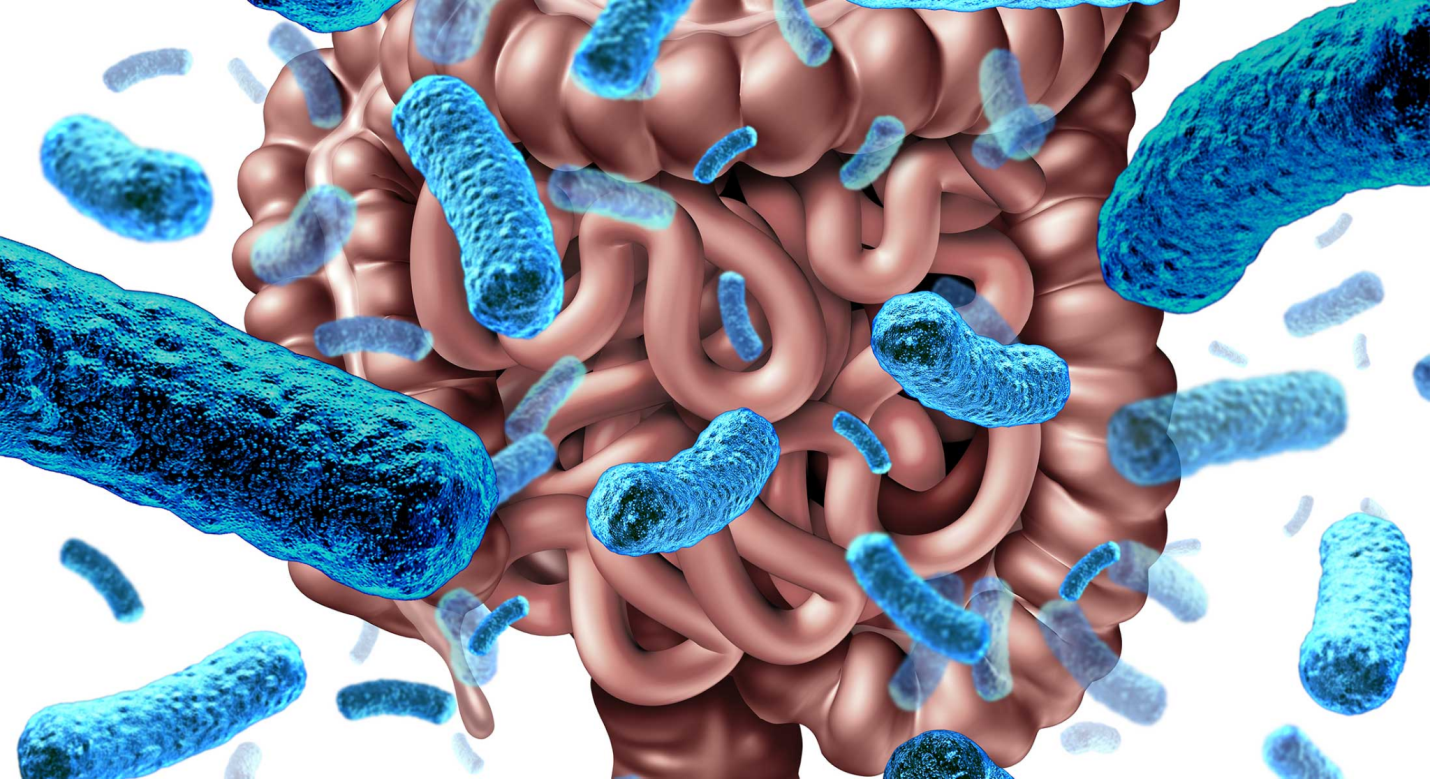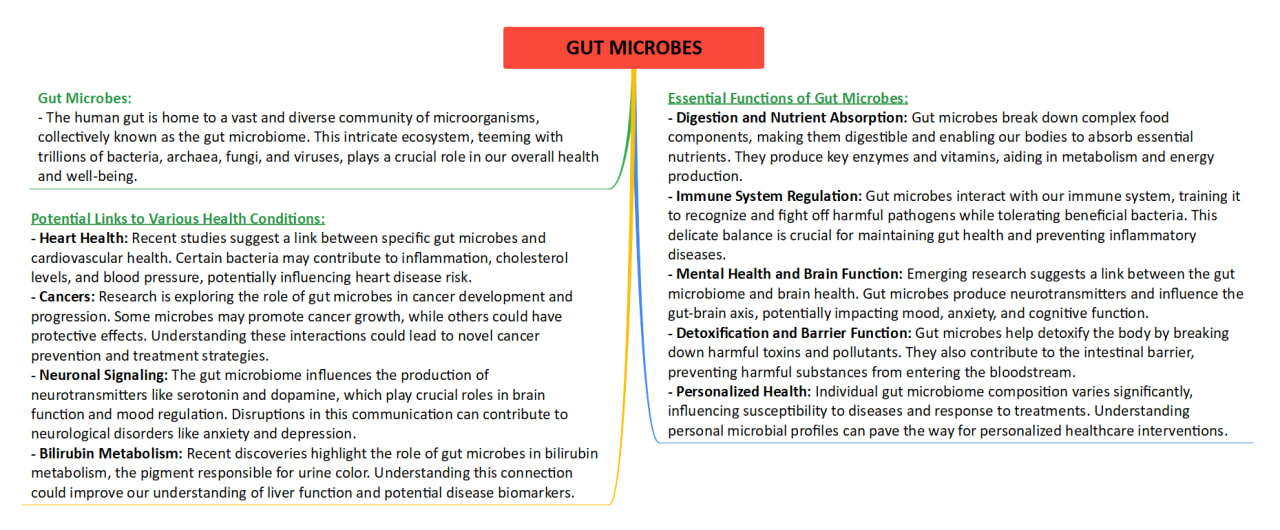Description

Copyright infringement not intended
Picture Courtesy: www.gutmicrobiotaforhealth.com
Context: A recent study conducted on the intricate relationship between the human microbiome and overall health, with a focus on its potential links to heart health, cancers, neuronal signalling, and even the colour of urine.
Key Highlights
- The human microbiome consists of trillions of microorganisms in the digestive tract, influencing digestion, nutrient absorption, metabolism, immunity, and mental health.
Genomic Technologies and the Human Microbiome Project
- Genomic technologies, including genome sequencing, have advanced our understanding of the human microbiome.
- The Human Microbiome Project (2012) provided insights into the complex microbial makeup of the human body.
Microbiome and Human Health
- A healthy human microbiome is crucial for various physiological functions.
- Changes in microbial composition, such as due to antibiotics or interventions, can lead to health conditions.

Manipulating Microbiome for Clinical Outcomes
- Researchers use interventions like fecal microbiota transplants to treat infections and improve metabolic syndromes in extreme obesity.
Genetic Influence on Gut Microbes
- Studies suggest genetic variations can affect the diversity and abundance of gut microbes.
- A study involving 9,015 individuals identified a link between genetic variants, the ABO blood group locus, and a gene cluster involved in metabolizing N-acetylgalactosamine.
Links to Cardiovascular Disorders
- A strong association between the ABO locus and the gene cluster in specific microorganisms suggests a potential modulation of the association between ABO blood groups and cardiovascular disorders through the microbiome.
Potential Links to Cancer and Neuronal Signaling
- Studies indicate a link between gut microbes, colorectal cancer, and a molecule called trans-3-indoleacrylic acid (IDA).
- Gut microbes, producing vitamin B12, may influence neuronal signalling by impacting the availability of free choline.
Microbiome and Urobilinogen Metabolism
- The role of the human microbiome in the metabolism of urobilinogen, the pigment responsible for the colour of urine. Researchers identified a bacterial enzyme, bilirubin reductase (BilR), involved in reducing bilirubin to urobilinogen.
Future Healthcare Implications
- Human genomic studies are expected to shape future healthcare by personalizing interventions based on an individual's microbiome.

Conclusion
- The evolving understanding of the human microbiome and its potential impact on health, linking it to cardiovascular disorders, cancers, neuronal signalling, and urobilinogen metabolism. The integration of genomic studies is seen as a key factor in shaping personalized healthcare interventions in the future.
|
PRACTICE QUESTION
Q. What is the human gut microbiome primarily composed of?
A) Fungi
B) Viruses
C) Bacteria
D) Protozoa
Answer: C
Explanation: The human gut microbiome is predominantly composed of various bacterial species that play a crucial role in maintaining health.
|

















